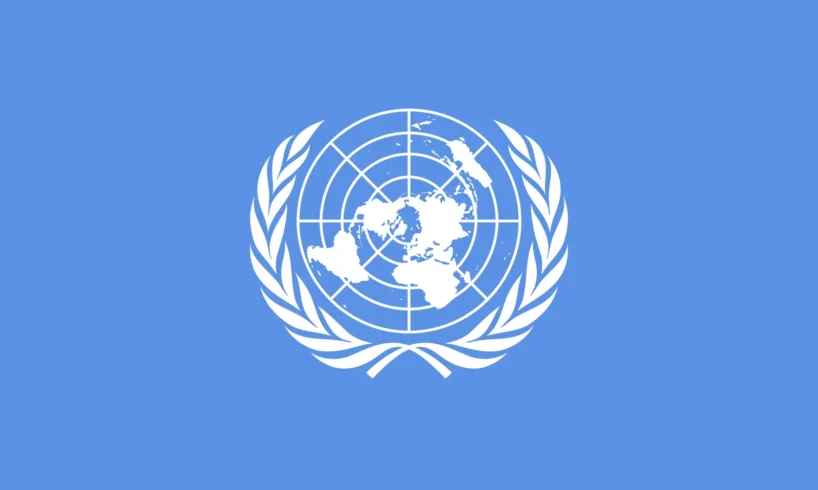
The United Nations (UN) rapporteurs on human rights and environmental issues have expressed concern over the cleanup exercise of the damaged Niger Delta environment following the divestment of assets by some international oil companies.
The experts faulted the recent divestment of assets in Nigeria by top oil companies (IOCs), saying the process lacked transparency and would hinder progress in clean-up efforts.
According to them, oil giants Shell, Eni, ExxonMobil and TotalEnergies breached international human rights law by selling their assets in Nigeria without cleaning up decades of pollution or compensating local people in the Niger Delta region.
The Niger Delta region of Nigeria has long been blighted by oil spills, gas flaring and discharges of toxic wastewater that have devastated ecosystems and jeopardised the livelihoods of farmers and fishermen, as well as hitting human health.
In a series of letters dated July 2 and published over the weekend, a working group made up of UN rapporteurs on human rights and environmental issues said the four companies’ divestments of onshore assets in Nigeria had lacked transparency and proper accountability, which could hinder clean-up efforts and compensation for damage caused by their operations.
“The subsidiaries’ operations in Nigeria have caused widespread environmental damage for decades,” the letters read, saying this had threatened numerous fundamental rights, including the right to a clean, healthy and sustainable environment, the right to safe drinking water and the right to access remedy.
Campaigners say major multinational oil companies have sold off their oil assets in Nigeria to local companies in recent years without paying adequate compensation and environmental restoration costs.
The local environment commission has estimated the cost of repairing damage in the Niger Delta state of Bayelsa alone at $12 billion, raising concerns that the buyers do not have the means to pay for the clean-up.
A Niger Delta-based environmental defender, Tobechukwu Diolu ,said the UN experts’ position was “a validation” of what communities in the region have been saying for years.
It gives us a form of legal framework to establish a defence for those living with oil spillage, to demand a clean-up fund and to insist that decommissioning cannot be abandoned,” said Diolu, whose climate advocacy organisation Lincgreen Initiative has been working with young people to push for justice in the region.
The UN experts said divestment of oil and natural gas assets may become more common as the world transitions away from fossil fuels, making compensation for past damage even more crucial.
“It is therefore of considerable importance that human rights abuses arising from the form of divestment now being used by oil companies are fully addressed and effectively remediated and compensated,” they wrote.
Diolu, the local campaigner, said: “Justice must come first before any transition.”
Some hard-hit Niger Delta communities have turned to the courts to seek compensation.
Earlier this year, a British court began hearing a case brought by the Bille and Ogale communities against London-headquartered Shell and its Nigerian subsidiary, which was taken over by Renaissance Africa Energy Company.
Sophie Marjanac, director of legal strategy at the Polluter Pays Project, an advocacy group, said the UN experts’ intervention strengthened lawsuits already underway in Nigerian and international courts by making “it clear the firms have legal obligations to rectify the human rights abuses they’ve caused”.
In a written response to the UN group’s letter, Shell said it had “embedded respect for human rights” in its business principles and conducts divestments responsibly, screening buyers for technical and financial capability.
It said the sale of its Nigerian subsidiary to Renaissance was approved by the federal government after an “extensive review” and due diligence. It added that Renaissance – whose leadership is comprised of former Shell staff – will remain accountable for its share of commitments through a joint venture partnership which also includes Nigeria’s state petroleum company, including “conducting any clean-up and remediation” of spills.
Italy’s Eni “strongly rejected” the UN experts’ accusations, saying they “do not reflect the reality” of its operations in Nigeria. The company said the Nigerian government supported the sale of its onshore assets to Oando and followed an in-depth assessment of the buyer’s capacity, which regulators verified.
Eni added that at the time of the sale it had remediated “100 per cent of the spills” on its joint venture assets, except where sites were inaccessible for security reasons, and had also met its statutory decommissioning and abandonment obligations under Nigeria’s Petroleum Industry Act.
The UN experts did not receive a response from ExxonMobil and TotalEnergies.
Nigeria’s Ministry of Petroleum Resources and the Nigerian Upstream Petroleum Regulatory Commission did not immediately respond to a request for comment by Climate Home News.
Letters were also addressed to the governments of Britain, the Netherlands, Italy, the US and France, with experts accusing them of failing to take adequate action to prevent the adverse human rights impacts of companies under their jurisdiction.
They also criticised Nigeria’s government, saying its approval of the four companies’ divestments “raises serious concerns about its obligation to protect human rights, including the right to a clean, healthy and sustainable environment”.
The UN panel said it was of “grave concern” that the divestments were conducted “without following a human rights-based approach and against international law obligations”, and thereby risk becoming a yardstick for divestments elsewhere.
“Nigeria is being used as an experiment for divestment without clean-up,” they warned.
Marjanac from the Polluter Pays Project said urgent intervention by the Nigerian government and the countries where the companies are based would ensure funds are made available for historic liability.
“States have a legal duty to regulate and to protect human rights, and must not let the oil companies off the hook,” she said.





